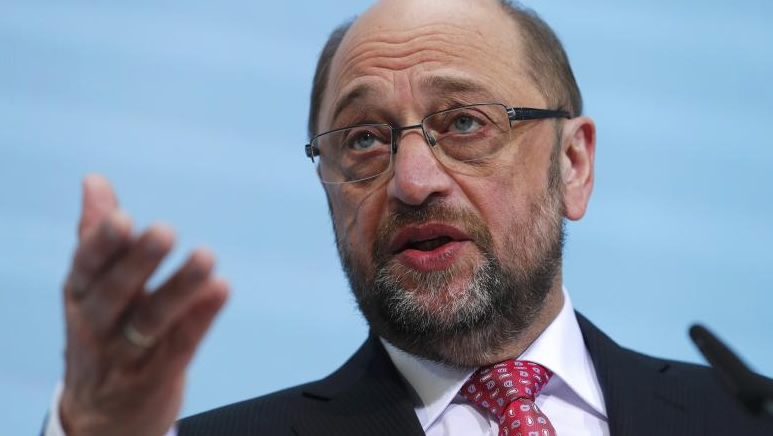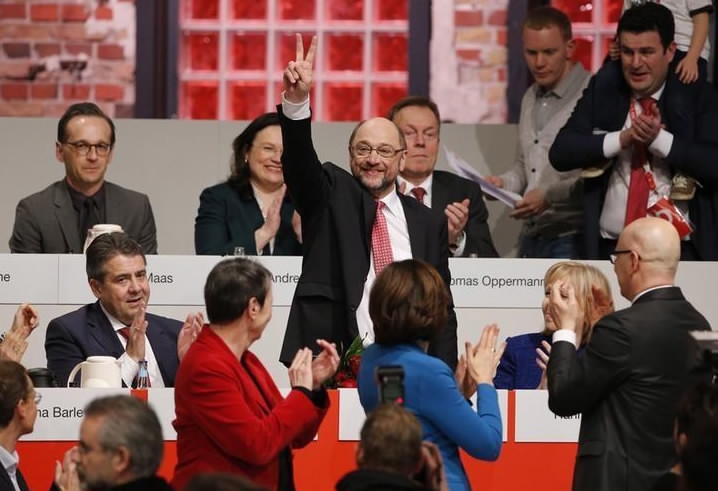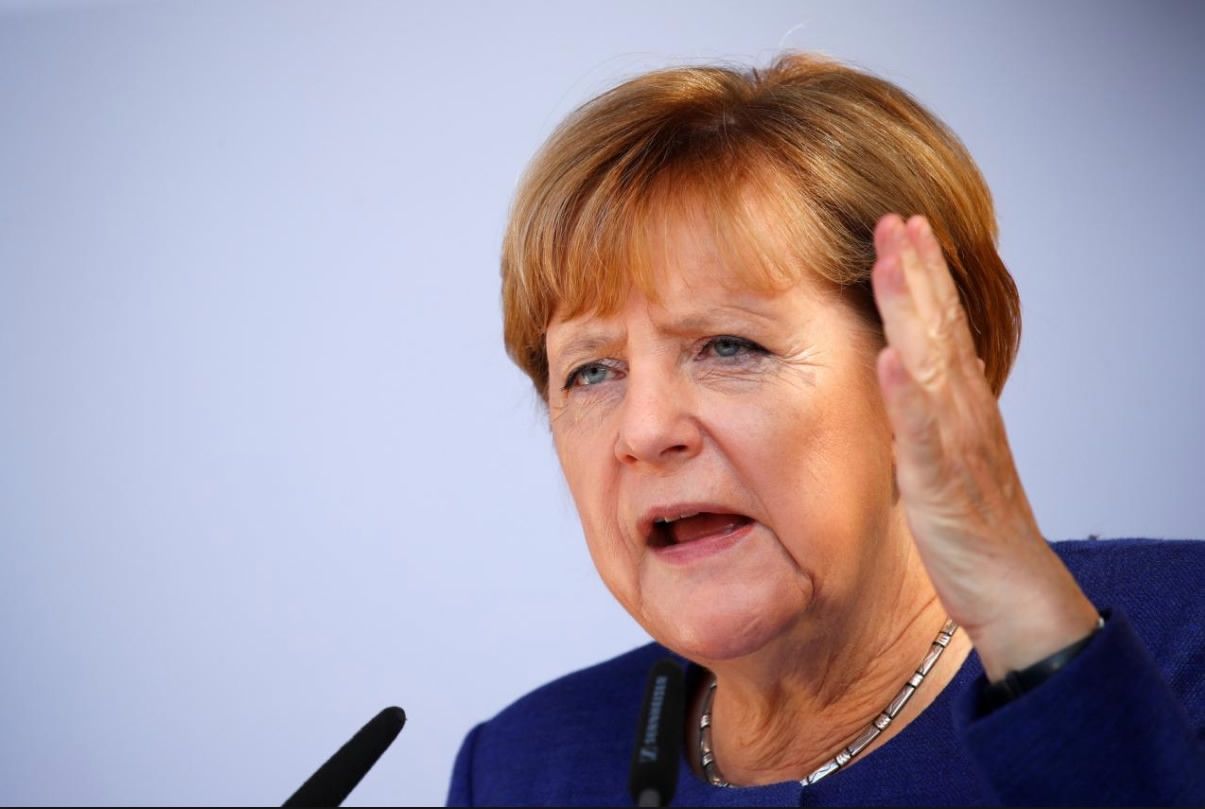
Politics
15:51, 10-Feb-2018
Political chaos deepens as Germany's Schulz makes a U-turn
By Nadeem Gill

The political crisis in Germany doesn't seem to be diminishing. After clinching a delayed coalition deal, Chancellor Angela Merkel suffered another blow as Social Democrats (SPD) leader Martin Schulz dropped his bid to become next foreign minister.
Schulz, the former president of the European Parliament, stepped down under intense pressure from senior party leaders.
"I hereby renounce joining the federal government and at the same time implore that this should be an end to debates about personalities," Schulz said in a statement on Friday.
"My own personal ambitions must be placed behind the interests of the party."
It comes after his Facebook post on Thursday defining the coalition deal, saying that as foreign minister, he would ensure "our European policy shapes our governance".
It is being viewed as another blow to Merkel, who has been struggling to form a government after last September's national elections.

Martin Schulz reacts after he was elected new Social Democratic Party (SPD) leader during an SPD party convention in Berlin, Germany, March 19, 2017. /Reuters Photo
Martin Schulz reacts after he was elected new Social Democratic Party (SPD) leader during an SPD party convention in Berlin, Germany, March 19, 2017. /Reuters Photo
Not everyone is disappointed by the move, however. Welcoming the decision is Dietmar Woidke, the SPD’s state premier for Brandenburg said, “I believe he made the totally correct decision.”
“Earlier would have been better – for him, the SPD and the public’s view of politics,” Woidke was quoted in Handelsblatt Global as saying.
What does the deal mean?
Under a deal for a new coalition contract to form a government, the SPD would have three significant portfolios: Foreign affairs, finance, and labor. The Social Democrats have not controlled the finance ministry in years. By giving up such controls to the SPD, critics say Merkel made painful concessions in her bid to form the new government.
The Interior Ministry will go to Merkel's sister party in Bavaria, the Christian Social Union (CSU), which advocates a stricter line on immigration.
The Christian Democratic Union (CDU) will get the Economic Ministry.
A fragile deal
The coalition deal, which some critics called a marriage of convenience between the CDU and the SPD was reached on Wednesday after protracted talks.
The deal is fragile until it gets a yes vote from about 500,000 SPD members. A no vote will jeopardize the agreement, leaving Merkel facing her biggest challenge in 12 years as chancellor.
In the event of a failure, fresh elections would be the most likely scenario, but that would plunge the country into further chaos, and it would take even longer than expected to form a permanent government.
A poor performance in the September elections weakened Merkel’s hand, making a coalition deal a complicated issue.

German Chancellor Angela Merkel speaks during an election rally in Binz, Germany, Sept. 16, 2017. /Reuters Photo
German Chancellor Angela Merkel speaks during an election rally in Binz, Germany, Sept. 16, 2017. /Reuters Photo
Merkel's CDU/CSU bloc began talks with the free-market liberal Free Democratic Party (FDP) and the Greens. The three-way alliance was dubbed a "Jamaica Coalition" because the parties' colors correspond to the Caribbean country's national flag.
The FDP, however, pulled out in November after four weeks of talks, bringing Merkel to a crossroads.
She then turned to the SPD, which was in a coalition with the CDU in the last government and had previously prevented the formation of a government with their former partner, with the 62-year Schulz saying after the most disappointing election results since WWII that his party would sit on the opposition benches this time.
Amid the crisis, the far-right Alternative for Germany (AfD), which made its way to the parliament as the third-largest party, is not the center of attention, at least for now.
The right-wing populists' success left the majority of the country shocked.
The AfD is apparently the biggest reason behind the political crisis that, not only Merkel, but all mainstream political parties in Germany are facing.
(With input from news agencies)

SITEMAP
Copyright © 2018 CGTN. Beijing ICP prepared NO.16065310-3
Copyright © 2018 CGTN. Beijing ICP prepared NO.16065310-3